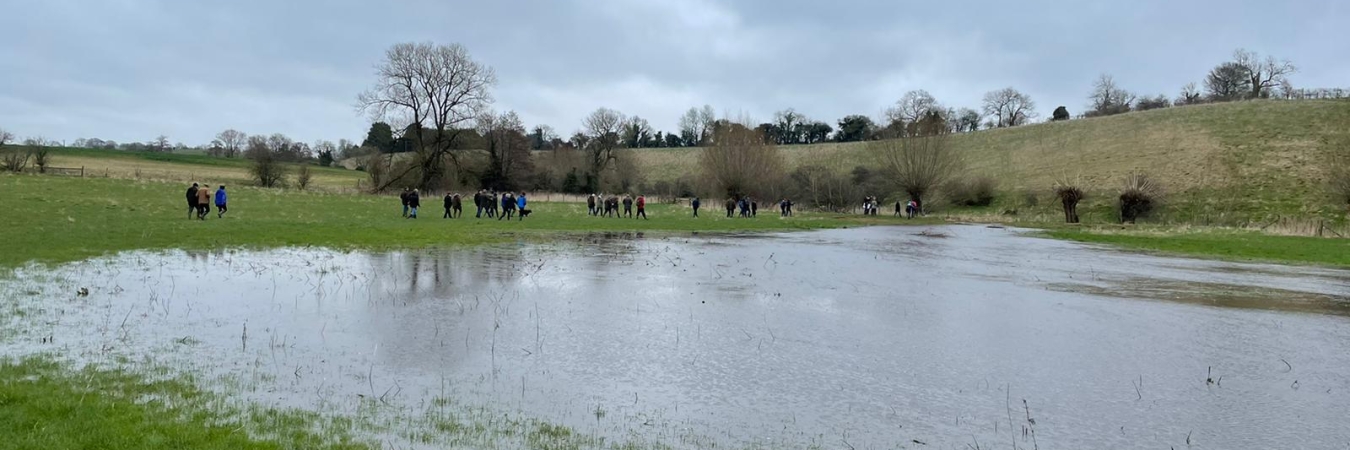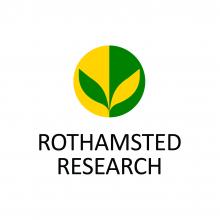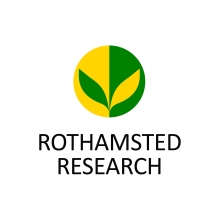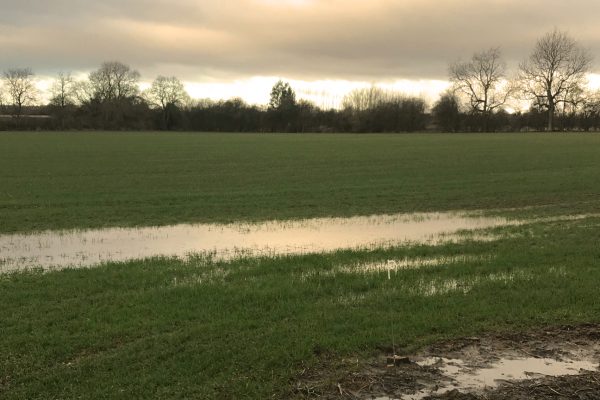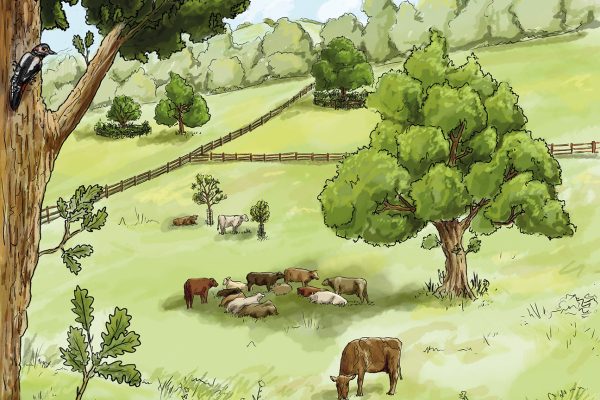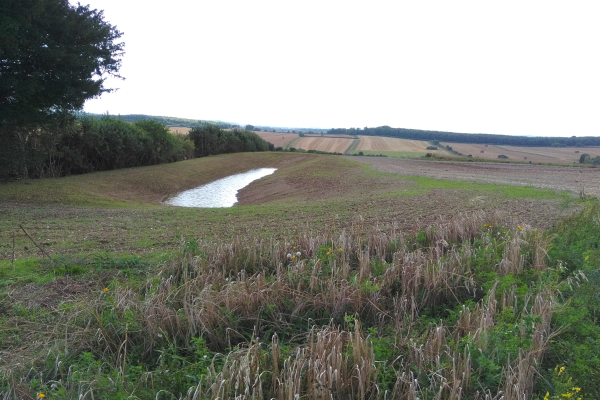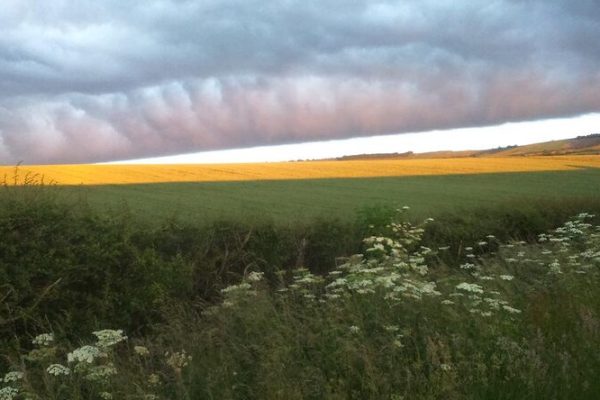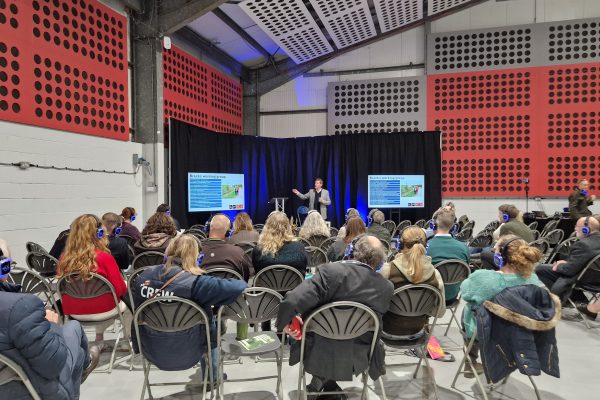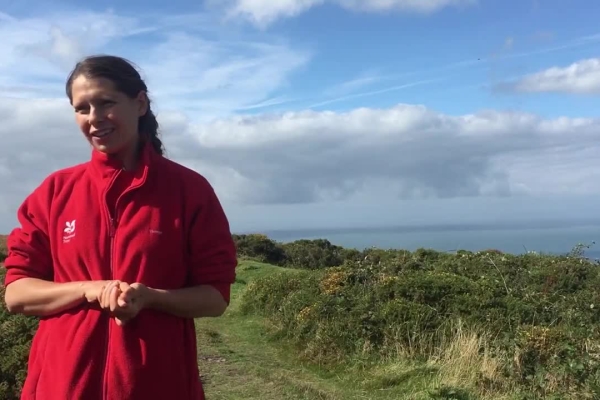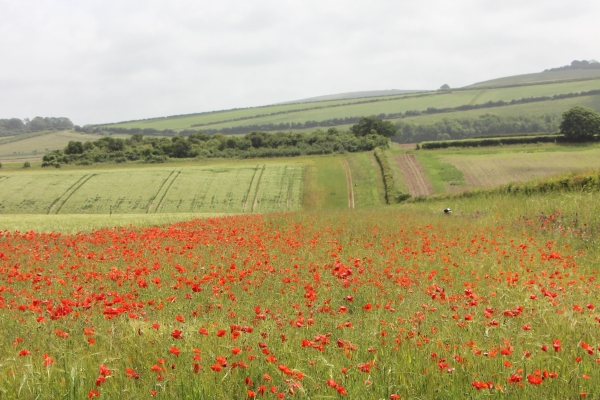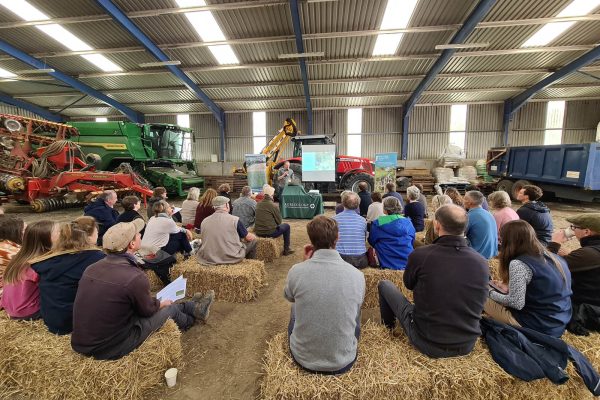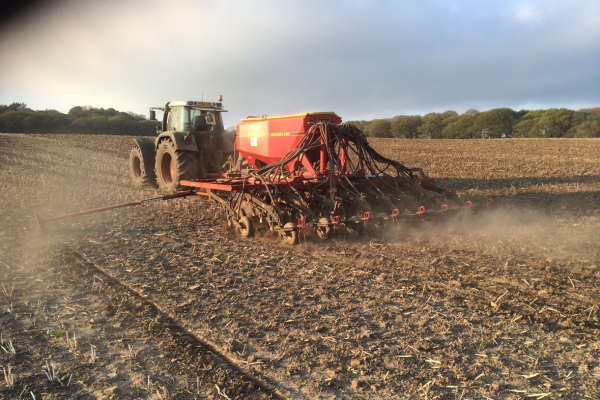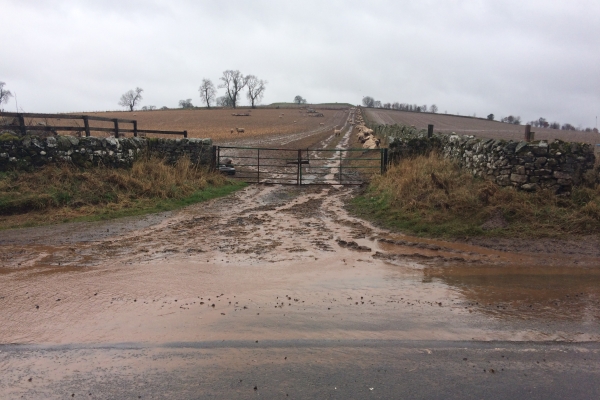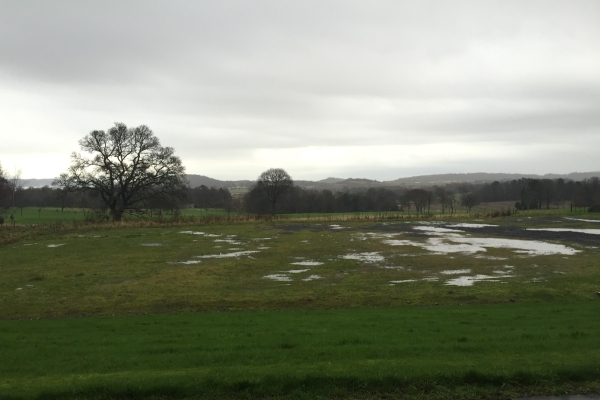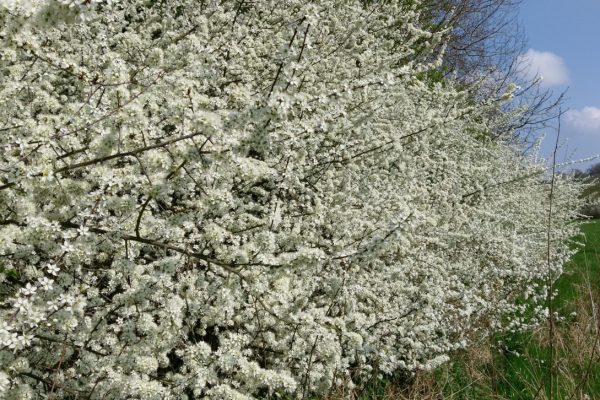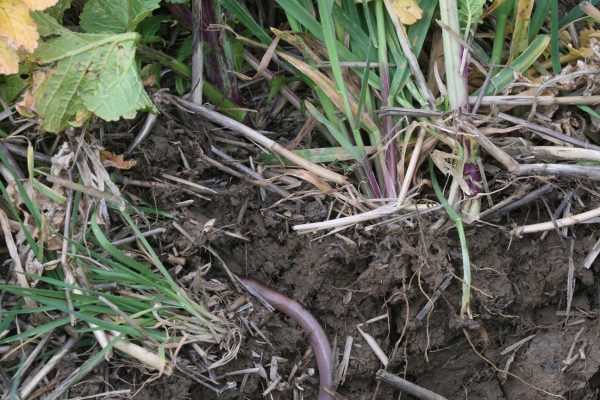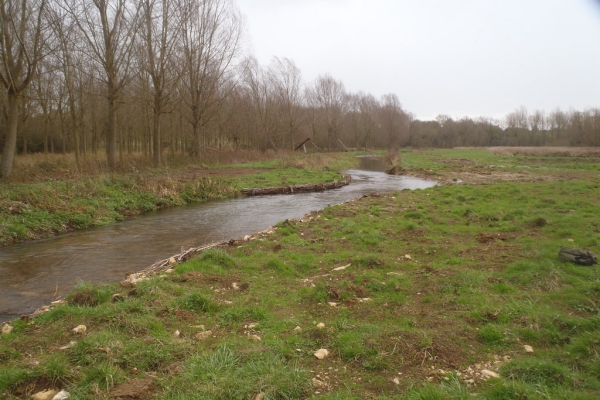North East Cotswold Farmer Cluster CIC
Project Background
The North East Cotswold Farmer Cluster CIC was set up to increase natural capital and ecosystem services across the region via partnership working, delivering landscape outcomes that by far exceed the sum of the individual holdings acting on their own. It will be achieved by the following objectives:
- A facilitation plan
- On-farm knowledge exchange events
- Consolidating mapping, raising awareness and hosting workshops for regional environmental and natural capital surveys and initiatives
- Appraising and supporting the design and delivery of holistic approaches to multi-holding natural capital expansion, connectivity and management
- Public engagement with the NE Cotswold Farm Community

Aims & Approach
Many commercial and charitable environmental projects operate in the NE Cotswolds. However, it is too frequently a minority of land parcels that participate and initiatives that tend to be ‘top-down’ in approach. The North East Cotswold Farmer Cluster (NECFC) intends to galvanise a landscape-approach, and through knowledge exchange, encourage farming neighbours and contemporaries to participate.
The farmer cluster will:
- Write and publish a facilitation plan
- Host knowledge exchange events including a focus on:
- ELMs: SFI & LR (with pilot representatives)
- Technique specific events e.g. hedgerow management, cover cropping, heritage grains, Treescapes Project
- Natural Flood Management (NFM), Biodiversity Net Gain (BNG), carbon markets
- Farm tours/walks (focusing on regenerative agriculture)
- Annual general meetings, quarterly ‘socials’ and farm cluster facilitation conference
- Raise awareness of regional environmental and natural capital surveys and initiatives:
- Integrate stewardship schemes and surveys into NECFC Land App ‘map of maps’ including Glorious Grasslands
- Wet grasslands and hydrology with ECP/WOx/AONB/EA
- Healthy Ecosystem Restoration Oxfordshire project (HERO)
- The Gloucestershire Regenerative Environment and Agriculture Transition project (GREAT)
- Oxfordshire Treescapes Project
- Supplementary feeding sites, elm trees, bird box installation etc. (*A project focused on this is underway – see the podcast below*)
- Soil carbon baselining (*A project focused on this is underway – see the video below*)
- Evenlode Catchment Partnership (ECP) water quality/NFM logging database
- Support the appraisal, design and delivery of holistic projects and multi-farm natural capital expansion, connectivity and management – both by co-ordinated linkage of existing and renewed schemes (Countryside Stewardship) or enabling innovation via alternative schemes (FiPL projects, SFI, Landscape Recovery pilot project, private investment, corporate investment etc). This will involve harmonising methods and mapping, and recruiting landowner engagement. There is a great need for NFM, BNG, carbon and water quality to be across-boundary and not siloed into specific farm holdings. The Cluster CIC can be commercially driven to secure finance for environmental outcomes, specifically supporting and convening for:
- Landscape-scale Soil Organic Carbon baselining assessment and mapping across 38 farms on 15,000 hectares (ha) to ISO14064-2 standards (see above).
- Landscape Recovery pilot proposal for river restoration in the lower Evenlode, Glyme and Dorn with multiple contiguous landowners and key stakeholders (application in progress).
- Flood meadow creation, restoration and enhancement up the Windrush valley in collaboration with FWAG SW, National Trust, Gloucestershire Wildlife Trust and Floodplain Meadows Partnership. NECFC has experience with members, the Evenlode Smarter Water Catchment and historical projects (scoping stage).
- Stream restoration and habitat creation project across 5 farms from Sarsden to Lyneham (*This project is underway – see the video below*)
- Supplementary bird feed project (see above).
- Flying flock/herd enterprises across the NE Cotswolds, facilitating access to new land and investment, in response to growing interest with rapid uptake of arable reversion, leys and cover crops.
*Note to farmers – Find out more and get involved here*
Project Outputs
All of the above aims to achieve:
- A soil carbon baseline across 36 farms and 15,227 ha
Watch this video featuring Tim Field (NECFC Facilitator) and Dr Stephan Haefele (Systems Agronomist at Rothamsted Research) explaining how they are going about establishing soil carbon baseline data and what they hope to achieve when they have it.
Watch a recording of ‘The Carbon Conversation’ held as part of the ‘Shuttleworth Series’ in May 2022 which featured a range of speakers sharing their approaches and journeys towards low-carbon agriculture, regenerative farming, and discussing the highs and lows of the current carbon schemes. Tim Field, Founder/Board Member Agricology, Facilitator of the North East Cotswold Farmer Cluster and CEO of Carbon Quester is joined by Thomas Gent, UK Country Manager and Head of Certificates for the Agreena Carbon Programme, Peter Allen, Farmer and Contractor on the Shuttleworth Estate, and Phil Jarvis, Chairman of Farming and Environment at Albanwise Farming.
NECFC Soil Carbon Baselining Project conference – Watch video footage from the conference (parts 1 to 5) here
Six months of soil carbon sampling and analysis are presented back to the cluster by researchers from Rothamsted and Carbon Quester, with guest speakers and experts from Natural England, NFU, Oxbury Bank, Trinity Ag Tech and Downforce. The conference supported understanding of how to use the data and next steps. The project, funded by FiPL, took samples from 36 farms across 15,000 hectares on 22 different soil types and a spectrum of crops, management systems and local ground conditions. The data from 1,300 samples are reported back and broken down to show where the opportunities exist to improve our soil carbon and soil health.
- Improved survival of farmland winter birds, and supporting data
Listen to a podcast in which FarmED’s Edd Colbert talks to farmland bird specialist, James Kempton, from the University of Oxford. James is conducting surveys of birds at FarmED as part of a project that investigates the impact of supplementary feeding on farmland bird species. He talks about the importance of birds as part of an integrated farmland ecosystem and the benefits to farmers of increased numbers of bird species on their land. The project takes place in association with the NE Cotswold Farmer Cluster, headed by Tim Field, and is funded by a Farming in Protected Landscapes (FIPL) grant.
- Better habitat linkage along a stream with four farms at Lyneham in Oxfordshire
Watch this short video featuring NECFC Facilitator Tim Field at Lyneham Heath Farm which he explains is part of a project to restore some habitat up a stream catchment just next to Lyneham. He describes what they have done to improve the watershed of the whole habitat and natural flood management measures that are being implemented. He also explains other habitat features they are planning on (using funding by Farming in Protected Landscapes) and what they plan to do using two other funding streams.
- A website and comms platforms for events, workshops and collaboration to support regenerative farming practices and improve Natural Capital in the North East Cotswolds
Building Long Term Capacity and Resilience in Our Local Meat Supply Chains
Access to affordable and suitable abattoir facilities are crucial to the viability of livestock farms, conservation initiatives, meat businesses and local food systems. The North East Cotswolds Farmer Cluster commissioned a study to help guide decision making, explore how long-term capacity and resilience can be built in to local meat supply chains, and to ensure Cotswold farmers have a voice in any future abattoir developments. The abattoir study was supported by West Oxfordshire District Council and the UK Shared Prosperity Fund (UKSPF).
Project Partners
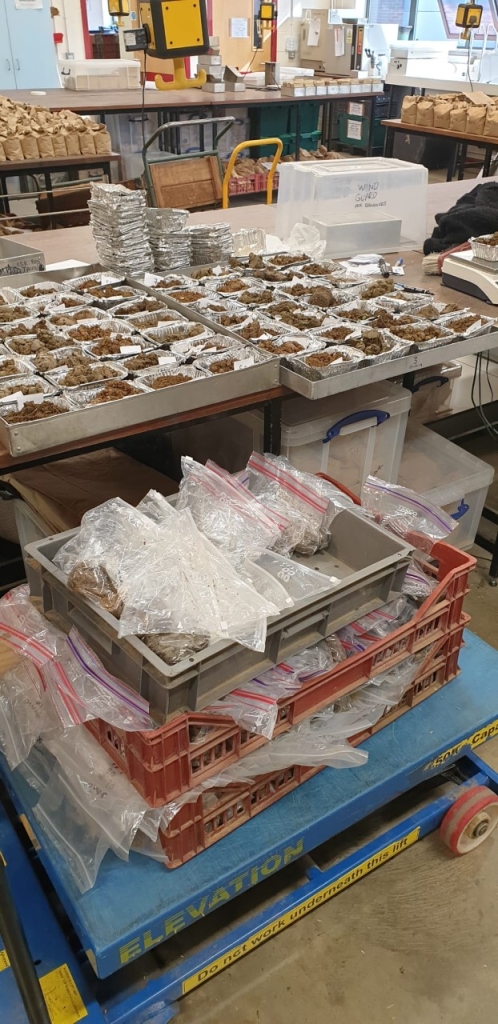
Related Organisations
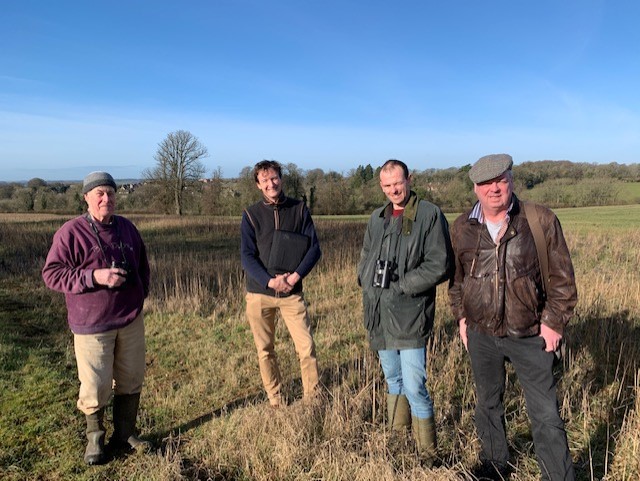
Evenlode Catchment Partnership
WildCRU on the supplementary feeding project

